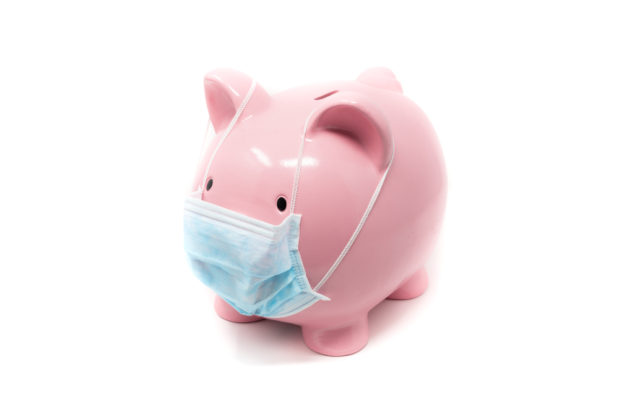Reminders to wash our hands, to keep social distance, and to avoid sneezing and coughing in public have become an almost daily occurrence in the media. But physical health is not our only concern in the face of stock market plunges, rising unemployment, and forced business closures.
For many of us, financial health has become a real concern. Just as there are steps you can take to keep yourself well, there are things you can do to manage your financial well-being.
Things to know & consider
The news reports that we shouldn’t panic because of rapid downturns in the stock market, and financial advisors urge us not to close accounts or try to read the market as long term the stock trade will recover. This is sound advice for those who are concerned with portfolios.
Still, many Americans face more immediate and dire impacts on their financial situations. If you are among those concerned with protecting yourself financially, here are some things you ought to know.
Unemployment
The federal government has created a $1 billion stimulus package designated for unemployment benefits. Half has been earmarked to shore up staffing and technology. States can claim the other half when their unemployment rate rises by 10% and with the caveat that they must make it easier for applicants to qualify.
New guidelines created specifically for this time of crisis also mean you may not have to lose your job to qualify for unemployment. Employees who are quarantined or furloughed without pay during the Coronavirus pandemic, but who will return to work eventually, may be eligible for unemployment benefits.
Typically, you would receive 45% of your income for somewhere between 14 and 26 weeks depending on the state in which you live. And it is important to note that each state sets their own rules for eligibility and benefits, so please contact your local unemployment office for full details.
Another important note is that the Coronavirus relief package does provide for paid leave to some companies’ employees. Very large companies or those with less than 50 employees can apply for exemption from offering paid leave due to hardship. Additionally, part-time workers are eligible for paid leave based on a two-week earning period, and gig economy workers can calculate an average daily rate of pay and make a claim using a tax credit.
Mortgages and Loans
The federal government is encouraging mortgage lenders to allow for delayed mortgage payment, so it is a good idea if you are financially pressed to contact your lender. Furthermore, the government is offering protection to those in most need by creating a nationwide moratorium on eviction or foreclosure for borrowers who finance their mortgages through F.H.A. subsidized lenders such as Fannie May or Freddie Mac.
The U.S. Department of Education has also offered a 60-day waiver of payment for federal student loans. You must, however, contact your lender to ascertain that you are eligible and to request a waiver. You will not be charged interest during the waiver period and there should be no impact on your credit score.
For other loans and bills, it is a good idea to contact your lender and explain your circumstances. The Consumer Financial Protection Bureau has encouraged financial institutions to aid customers during the Coronavirus outbreak.
Many lenders work with you, and keeping them apprised of your situation is less likely to impact your credit score. And as for bills such as utility payments, be sure to contact your providers. Many are waiving fines for late payment so that you continue to have service.
Taxes
For those who owe money on their federal taxes, the government has extended the filing deadline to July 15. You don’t have to file or make any payments until then. If you are owed a refund, you should receive it as normal based on when you file your return.
Scams
One last way to protect yourself and the ones you love financially is to be aware that scammers take advantage of our most vulnerable, such as the elderly, particularly during times of crisis. Look out for emails, texts, and social media posts asking for donations or pitches for debt relief and investment.
There are also internet sellers offering bogus Coronavirus cures and faulty equipment, misbranded products, and overpriced consumer goods. A first step in protecting yourself against scams is to know what to watch for and how to respond. Second, be sure you are aware of products that have been labeled as dubious.
Small Business Aid
Small business owners are some of the first to be impacted by an economic downturn. Even more so when their business is forced to close. Fortunately, the Small Business Administration offers low-interest disaster relief loans for small businesses.
You might consider whether or not you could shift your business online. If you run a small restaurant, register with a food delivery service like DoorDash to keep delivery orders coming in — and in this case, also going out.
If you have an online store already set up and some funds to support your marketing and advertising efforts, redirect as much traffic there as possible. Let your customers know via social media that you’re still taking orders online despite closures. This will keep your employees’ income steady also.
Prevention is the Best Measure
COVID-19 is a temporary threat, as are the financial problems it has caused. Just as you would in protecting your physical health, taking measures to protect yourself financially can help you get through this period and avoid the worst effects of the pandemic on your wallet.

